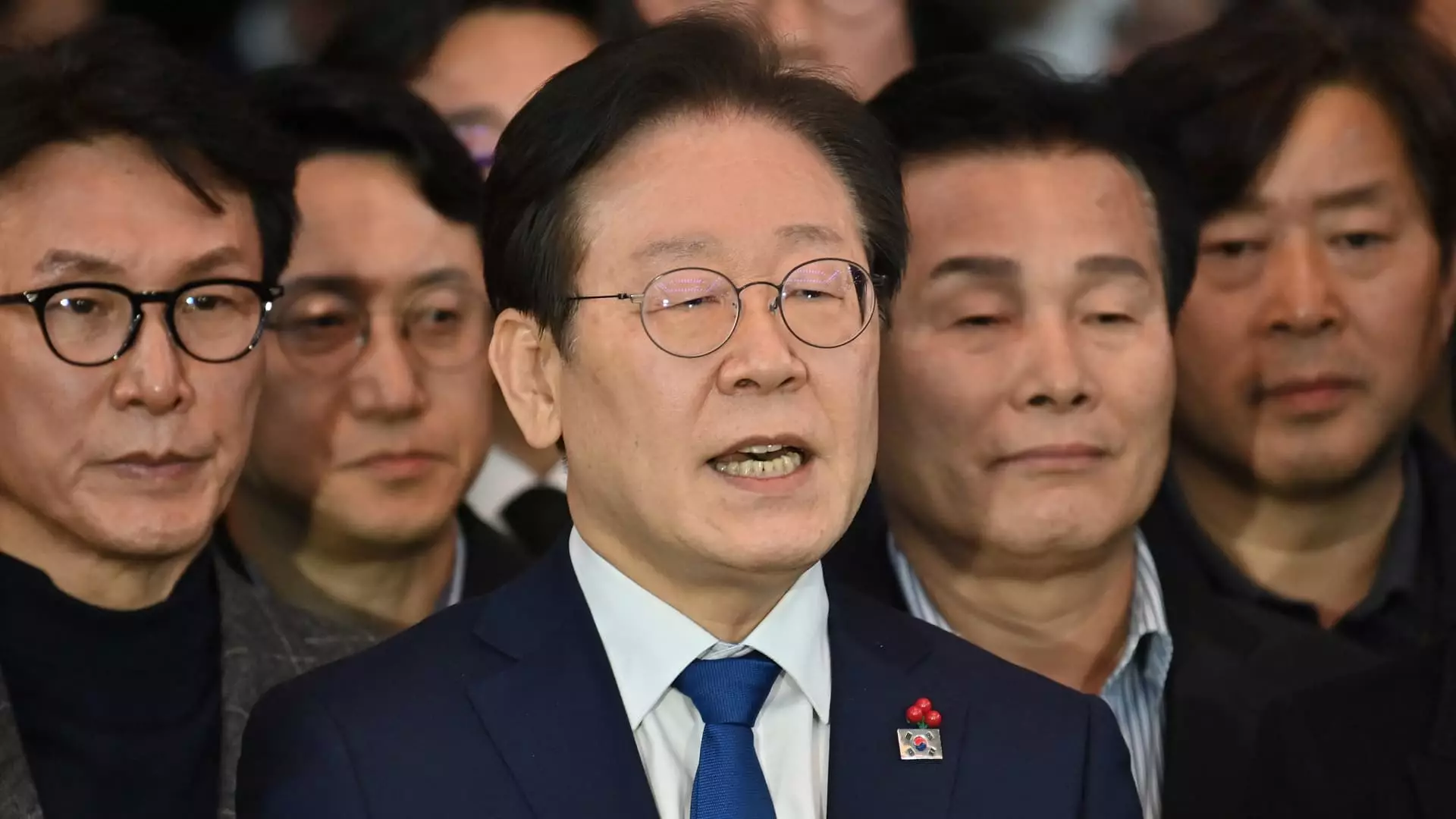In the volatile landscape of South Korean politics, Lee Jae-myung has emerged as a formidable frontrunner in the race for the presidency. His recent call for a reassessment of the current U.S. trade tariffs serves not only as a reflection of his diplomatic approach but also highlights a critical juncture for South Korea’s relationship with one of its most important allies. With the stakes higher than ever, Lee’s perspective on trade negotiations offers a compelling insight into the art of diplomacy. Trade should not be a zero-sum game, he emphasizes, but rather a symbiotic relationship that fosters mutual growth and respect. This sentiment is refreshingly pragmatic and aligns well with the needs of both nations, particularly in these turbulent economic times.
The Fallout from Leadership Turmoil
The backdrop to this electoral contest is riddled with political upheaval, as Yoon Suk Yeol’s impeachment for declaring martial law has left an unsettling void in leadership. In the wake of such chaos, Lee stands poised not just as an alternative, but as a much-needed stabilizing force. The urgency with which Lee articulates his vision is palpable; the pressure to reach a beneficial agreement with the U.S. looms large, especially with a looming deadline of July 8 set for tariff negotiations. His assertion that “diplomacy should benefit both sides” serves as a clarion call for a more balanced approach to international relations, opening the door for genuine collaboration rather than exploitation.
Amid this discourse, the notion of diplomacy transforms from mere paperwork into a dynamic interaction that requires agility and foresight. Lee’s willingness to extend the timeline—inviting a rethink of one-sided frameworks—positions him as a leader willing to confront conventional wisdom and adapt policies for the greater good.
Economic Challenges Ahead
As South Korea grapples with a slowing economy, the urgency for actionable measures cannot be understated. Lee’s proposal for an extra budget to stimulate growth demonstrates his commitment to proactive governance in the face of adversity. Unlike his predecessors who may have overlooked immediate economic concerns in favor of long-term strategies, Lee’s mindset appears focused on ensuring South Koreans do not bear the brunt of global uncertainties. His assertion that immediate action is non-negotiable reflects an understanding that economic stability is intertwined with public confidence, and without the latter, political existence becomes precarious.
In this charged atmosphere, Lee’s determination to forge a task force to combat recession signals not just a plan of action but a promise of accountability. For voters increasingly weary of political instability and economic fragility, Lee’s resolve to adapt and respond is undeniably refreshing.
Peace and Pragmatism: A New Approach to North Korea
On the contentious issue of North Korea, Lee’s departure from Yoon’s hawkish stance is significant. The insistence on tough policy often exacerbated tensions without yielding any tangible outcomes. Instead, Lee advocates for a balanced approach that combines strength in defense with avenues for dialogue. This duality—emphasizing both security and communication—reflects a modern understanding of international relations, particularly pertinent in a region fraught with historical animosities.
As he illustrates, military power is crucial, yet equally important is the ability to engage in constructive dialogue with one’s adversary. In a world where outright confrontation often leads to escalation rather than resolution, Lee’s approach may not only alleviate internal economic concerns but also foster a more stable geopolitical environment.
Polling Waters and the Path Ahead
Despite his lead in polling, which recently reported Lee with a solid 45% compared to conservative rival Kim Moon-soo’s 36%, the margin underscores the competitive volatility of the race. Political momentum can shift rapidly, and Lee’s confidence in South Korea’s electorate serves as a litmus test for public sentiment regarding accountability and leadership. His allusion to not supporting insurrection speaks volumes about the importance of trust in governance, an issue that resonates deeply in a population increasingly distrustful of political elites.
The political landscape is fraught with uncertainty, but Lee’s ability to position himself as a pragmatic leader with a clear economic and diplomatic vision may well set the tone for a new era in South Korean politics. As the election looms, voters find themselves at a crossroads, weighing the merits of leadership that promises to transcend mere negotiation, aiming instead for a partnership rooted in mutual benefit and respect.


Leave a Reply